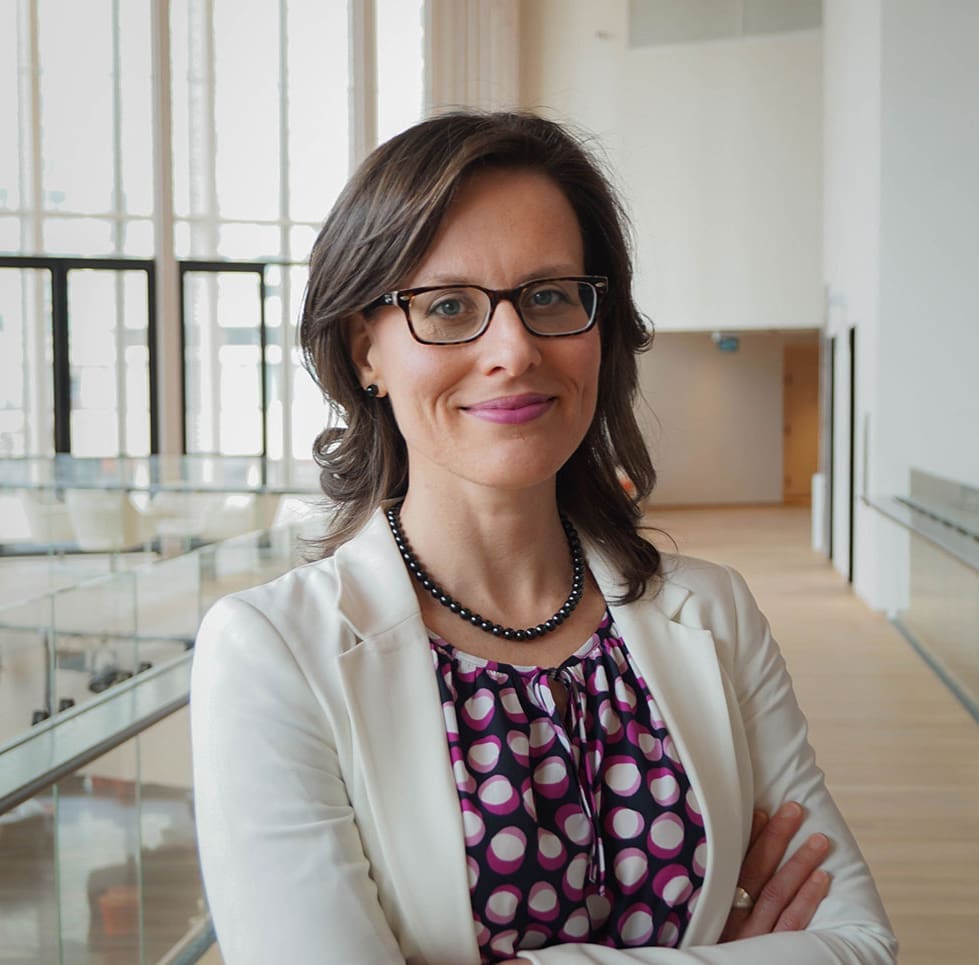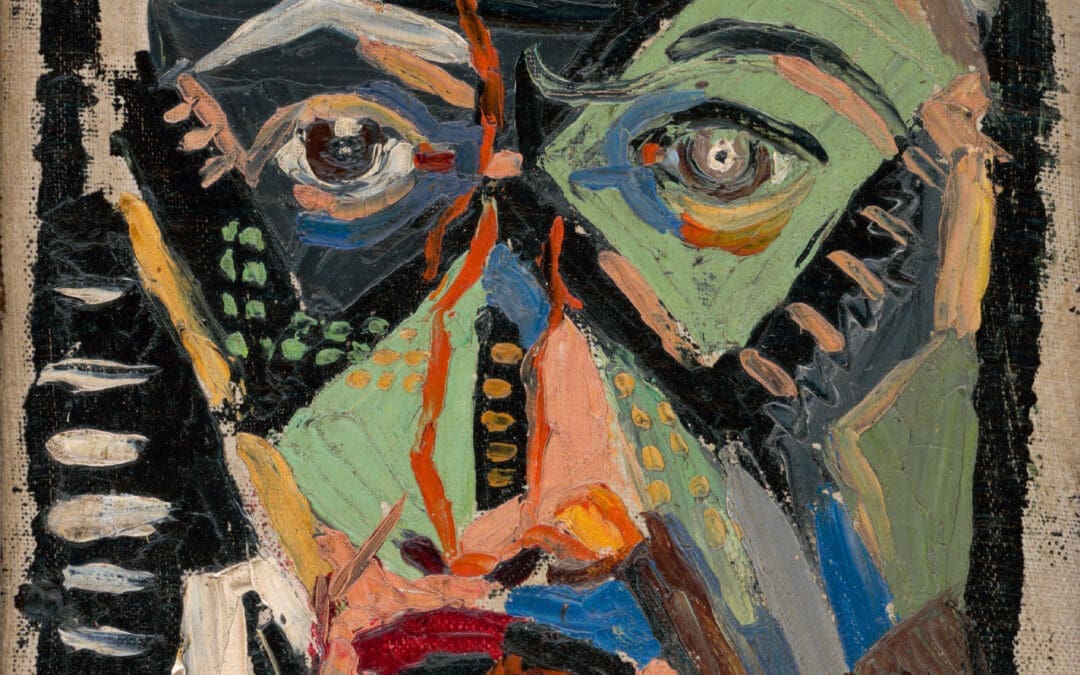Inspired by the interviews in the Paris Review and Bomb magazine, “The Questions” in Sports Illustrated, and the regular interviews on the blogs of Tom Peters and Guy Kawasaki, Comment has asked a diverse group of mentors for their stories.
Comment: How would you explain what you do to an interested nine-year-old child?
Andrea Mrozek: I read, research, and write articles. I provide solid, quantitative information on what makes families strong—with an eye to forming good public policy and conversely to breaking bad policy down. That might be a good place to start with a nine-year old. Any think tank is like a school, providing information and a forum in which to learn and debate. (I just lost my nine-year-old, didn’t I—is it time for recess yet?)
Comment: What first drew you to this work?
AM: Growing up, ideas were important in our house. I have wanted to express myself on issues—political, cultural, economic, and religious—since I was pretty young. I thought of doing a Ph.D. in history, but realized I am too loud for that and couldn’t spend the time required in the archives—or discussing issues not always completely germane to current events. I also think that the university environment has become excessively politically correct and as such, there’s more freedom to do better work outside of one.
Comment: As a novice, what were your most valuable learning experiences?
AM: This question assumes I am no longer a novice, which may or may not be the case! In any event, on the journey, the most valuable learning experiences have certainly been the most difficult ones at the time: those moments when the work conditions were not ideal. I’ve worked in offices (in foreign countries, “to boot”) where supervisors but rarely cast a glance my direction. So I learned a dedication to the work at hand and to values and ideals without looking for the affirmation of others.
I think I’ve often looked too much to the expectations of the culture rather than to God for a sense of self worth. Maybe God placed me in those difficult circumstances so I could learn that the culture, an editor, or a byline doesn’t define who I am or my importance in the world.
Comment: What is the best advice you’ve ever been given?
AM: It’s probably from my parents: that all I have is integrity, an honest reputation. And this is very true in every work area. This speaks to the notion that Warren Buffet has expressed when he looks to hire employees: “In looking for someone to hire, you look for three qualities: integrity, intelligence, and energy. But the most important is integrity, because if they don’t have that, the other two qualities, intelligence and energy, are going to kill you.”
One useful tidbit of advice from an editor for my writing was “show, don’t tell,” which speaks to using examples to prove a point.
Comment: From what sources do you draw inspiration for your work?
AM: Frustration can be inspiration, or at very least, motivation. The first opinion piece I ever published was the result of a discussion with my editor at the time. I could tell he had misunderstood my position but he closed the door (literally) on further discussion. (Erm, not every person I’ve worked for in the past was an ogre. Good people—just busy). Anyway, I went home and penned my first opinion piece which subsequently was in The Calgary Herald, on a Saturday morning. It was a feeling that replicated Christmas morning as a child for the first time in my adult life.
Motivation is not quite the same as inspiration. For true inspiration (and rejuvenation) I look to the great outdoors. I spend as much time as I can outside. Nature is inspiring to me: mountains, the ocean, lakes and sunsets in Algonquin Park.
Comment: What rituals and habits structure your workday?
AM: Does coffee count as a ritual? Because there ain’t much I do without it.
I exercise everyday—call that a habit. Blogging is now part of my routine—not one day goes by without something going up on my web site. This offers more relief, pleasure, and pressure than I had ever envisioned before starting the thing. I pray every morning (briefly) and every evening (longer) before bed.
Comment: What are your favorite tools?
AM: The Internet. How would I do anything at all without it?
Comment: Tell us about a project that delighted you.
AM: The creation of my website—how it came together, the thought process, the people who helped. It’s a project under development so I look forward to seeing what it might become.
I struggled through the first major story I broke, about sex selection abortion in Canada and the end result was a delight, after an entirely stressful and painful process, which included visiting many abortion clinics. I “broke” it in the sense that I quantified the trend. Sex selection abortion was already known in Canada. And I am delighted to see the Institute of Marriage and Family Canada grow and prosper and take meaningful steps toward being a really strong, credible presence in Canada.
Comment: How do you plan your work?
AM: I have a short- and a long-term plan. I take on short-term projects that I don’t plan, because you can’t plan what the news may bring. Opinion pieces, for example, can be pitched one morning and filed the same day if the topic is truly topical. Otherwise, I create a grid, I assign deadlines and I work toward those deadlines.
Comment: How does your work connect to other aspects of your life?
AM: Work and life intertwine for me insofar I find the ideas I deal with very compelling. My job is, thankfully, not a nine-to-five, pay-the-bills affair. Were circumstances to change and I didn’t have this particular job, I can’t imagine giving up on the issues that are important to me, or ceasing to write entirely. Take me out of this workplace, and I’ll continue to think about the same work—whether at cocktail parties, the gym, on a jog—wherever.
My friends and family ought to be very glad I have the job I do—it allows me to be slightly less annoying at dinner gatherings!

